10 best fitness gadgets: top tech for training
Wristbands, headphones, scales, MP3 players and more
Sign up for breaking news, reviews, opinion, top tech deals, and more.
You are now subscribed
Your newsletter sign-up was successful
4. Fitbit Aria - £100/US$130/AU$150
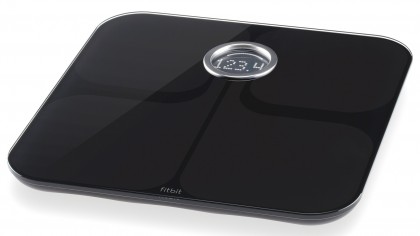
The maker of the Fitbit One pedometer here brings the ageing bathroom scales into the 21st century. After connecting it to your home wireless network, your weight is recorded on your Fitbit account as well as being shown on the scales.
Its glass surface contains electrodes that send a pulse through your body to measure your fat percentage, from which it can calculate your Body Mass Index (BMI). All this information can be viewed on the Fitbit Dashboard through your web browser or a dedicated iOS app, and up to eight people can register an account and share the same set of scales. Best positioned on hard surfaces only, the Fitbit Aria is fun to use and comes highly recommended.
Read our full Fitbit Aria Wi-Fi review
5. Jawbone Up - £100/US$130/AU$150
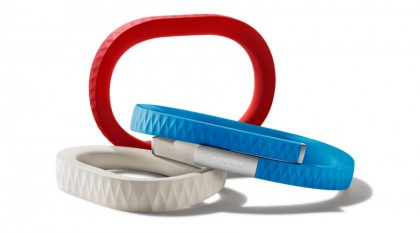
Motion sensors galore adorn the Jawbone Up, an oddly-named bracelet-style pedometer that's also capable of monitoring your sleep. Sharing the information it collects with a smartphone app for iPhones and Android, the wristband and its software tell you how well you slept based on how you moved, sensing a difference between light and deep sleep and acknowledging when you wake up.
Fantastically designed, the Jawbone uses a 3.5mm jack to plug into a smartphone - for both data swap and charging (though Bluetooth would have been better, as with FitBit) - and a full battery charge is good for 10-days worth of use. Useful for identifying major flaws in your own activity - such as being a few kilometres short of your daily 10,000 steps - the Jawbone Up can divide-up sleep into deep/light, though there's precious little interpretation of any of the data it records.
Read our full Jawbone Up review
6. Larklife - £100/US$150 (around AU$165)
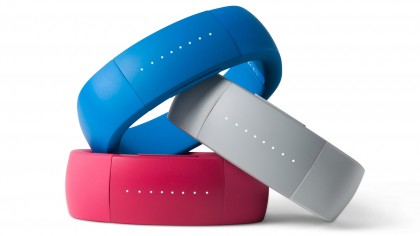
A pedometer whose main task is to force 10,000 steps from you per day, Larklife is a wristband that can wakes you - using a silent alarm clock - and then records even your slightest movements throughout the day. Then it tells your phone. It learns your bad habits and proffers coaching tips, while it's also possible to record your eating patterns, too.
Sign up for breaking news, reviews, opinion, top tech deals, and more.
Three different sizes are available, though it's a two-piece product - one is for daytime use, and movement, while the other is strictly for wearing in bed. The latter manages to decipher the difference between trying to sleep and actually sleeping, presumably using your movements and known average sleep data to produce exact times for falling asleep, hours spent sleeping, and how often you wake up. Probably the most useful function of Larklife is its alerts, which remind you that you've not moved from your desk for, say, two hours, which is all too easily done.
7. Zeo Sleep Manager Pro+ - £120/AU$150 (around US$195)
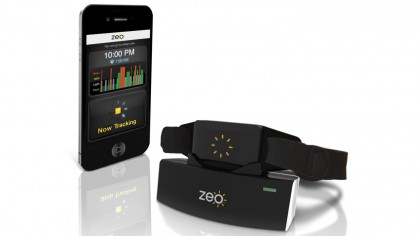
Solely focused on sleep - a cornerstone of health, well-being and fitness - the Zeo Sleep Manager Pro+ is an evolution of the Zeo bedside device you've probably seen before. This version instead uses a combination of a headband - rather than a wristband - with apps for iOS and Android devices to measure sleep patterns, and sort your sleep into four stages (Wake, REM, Light and Deep). The apps then interpret the data and offer advice, with a sleep graph prepared that compares your night's sleep with previous nights and with your age group's average.
Especially useful for all who have to wrestle with changing sleep patterns - from shift-workers to frequent flyers crossing time zones - the Zeo is a serious attempt at interpreting - and improving - sleep.
8. myFC PowerTrekk - £170/US$230 (around AU$280)
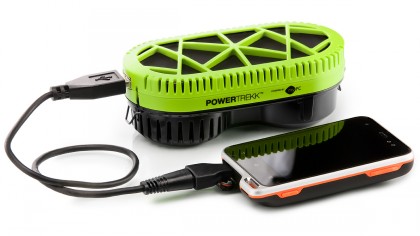
Take any trip outdoors lasting longer than six hours and we guarantee at least one - and probably all - of your party will start to worry about their smartphone's battery. Instead of heading back home or to a hotel to charge up for the next day's activities, the myFC PowerTrekk hydrogen fuel cell charger - an electrochemical device that turns chemical energy stored in a fuel into electrical energy - is an answer.

Jamie is a freelance tech, travel and space journalist based in the UK. He’s been writing regularly for Techradar since it was launched in 2008 and also writes regularly for Forbes, The Telegraph, the South China Morning Post, Sky & Telescope and the Sky At Night magazine as well as other Future titles T3, Digital Camera World, All About Space and Space.com. He also edits two of his own websites, TravGear.com and WhenIsTheNextEclipse.com that reflect his obsession with travel gear and solar eclipse travel. He is the author of A Stargazing Program For Beginners (Springer, 2015),